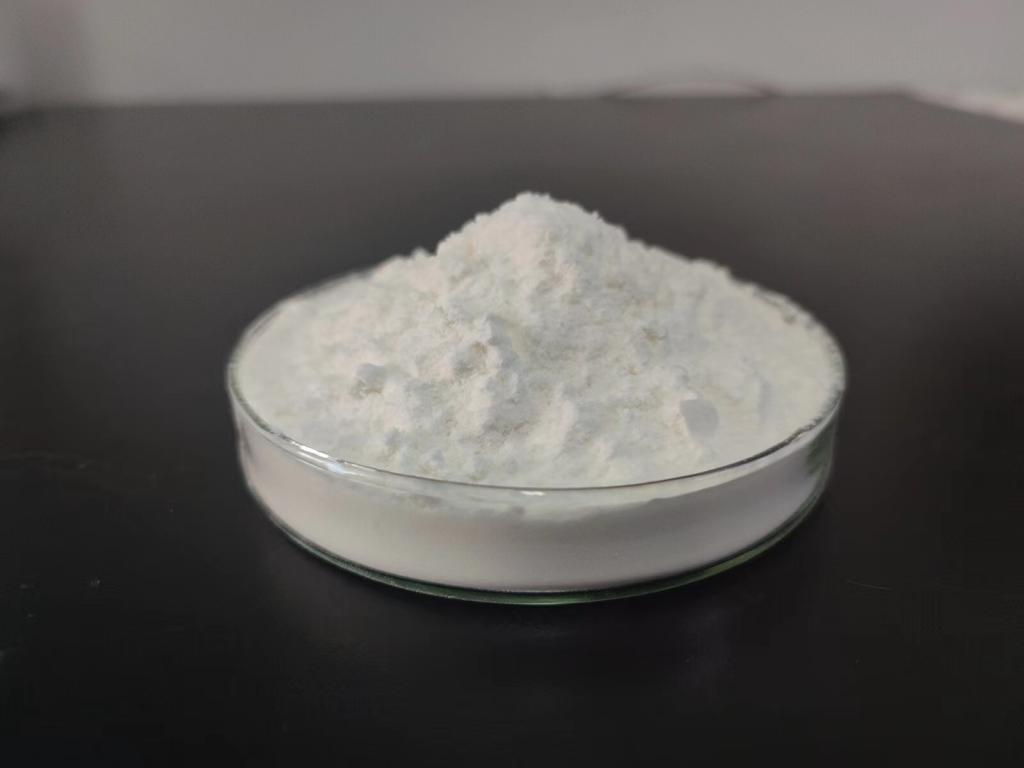Tel:+8618231198596

News
 CONTACT
CONTACT
 CONTACT
CONTACT
- Linkman:Linda Yao
- Tel: +8618231198596
- Email:linda.yao@dcpharma.cn
- Linkman:CHARLES.WANG
- Department:Overseas
- Tel: 0086 0311-85537378 0086 0311-85539701
News
Current Position:
Home >
News
>ε-Polylysine Hydrochloride's Potential Role in Personalized Nutrition.
ε-Polylysine Hydrochloride's Potential Role in Personalized Nutrition.
TIME:2023-09-15
Understanding Personalized Nutrition
Personalized nutrition recognizes that one-size-fits-all dietary recommendations may not be suitable for everyone. Instead, it takes into account individual variations in genetics, metabolism, lifestyle, and health status to design personalized dietary plans. The main components of personalized nutrition include:
Genetic Profiling: DNA analysis provides insights into an individual's genetic predispositions related to nutrient metabolism, food sensitivities, and disease risk.
Lifestyle Assessment: Factors like physical activity levels, sleep patterns, stress management, and dietary preferences are considered to create tailored nutrition plans.
Health Goals: Personalized nutrition aims to address specific health goals, whether it's weight management, disease prevention, sports performance, or overall well-being.
Nutrient Optimization: By customizing nutrient intake to an individual's needs, personalized nutrition seeks to ensure optimal nutrient status.
Monitoring and Adaptation: Regular monitoring of progress allows for adjustments to the dietary plan, ensuring it remains aligned with the individual's evolving needs.
Personalized nutrition has gained momentum due to advances in genetic testing, nutrition science, and data analytics. However, incorporating natural compounds like ε-Polylysine hydrochloride adds an exciting dimension to personalized nutrition strategies.
ε-Polylysine Hydrochloride: A Natural Antimicrobial Compound
ε-Polylysine hydrochloride is derived from natural sources and has gained recognition as a safe and effective antimicrobial compound. It is produced by certain strains of bacteria and is classified as Generally Recognized as Safe (GRAS) by regulatory authorities. ε-Polylysine hydrochloride's primary mechanism of action involves disrupting the cell membranes of bacteria, making it an effective preservative against foodborne pathogens and spoilage microorganisms.
The Potential Role of ε-Polylysine Hydrochloride in Personalized Nutrition
Microbiome Modulation
Individualized Microbiome Support: The gut microbiome plays a crucial role in nutrient metabolism and overall health. ε-Polylysine hydrochloride may be utilized to selectively modulate the gut microbiota, addressing individual variations in microbial composition. This approach can help improve nutrient absorption, reduce inflammation, and support digestive health based on an individual's unique microbiome profile.
Probiotic and Prebiotic Enhancement: ε-Polylysine hydrochloride can be combined with probiotics and prebiotics tailored to an individual's needs. This combination promotes the growth of beneficial bacteria while inhibiting harmful pathogens, creating a personalized approach to gut health.
Food Preservation for Personalized Meals
Extended Shelf Life: In personalized nutrition, customized meals and dietary recommendations often involve fresh ingredients and minimal processing. ε-Polylysine hydrochloride can be used as a natural preservative to extend the shelf life of personalized meals without the need for artificial additives. This ensures that individuals have access to fresh, nutrient-dense foods.
Minimizing Food Waste: Personalized nutrition emphasizes individualized meal planning. By preventing spoilage, ε-Polylysine hydrochloride can help reduce food waste associated with personalized meal preparation.
Customized Nutrient Delivery
Enhanced Nutrient Absorption: ε-Polylysine hydrochloride can be incorporated into personalized nutrient formulations to improve the absorption of specific vitamins and minerals, ensuring that individuals receive optimal nutrient levels based on their genetic and health profiles.
Targeted Nutrient Release: Encapsulation technologies that use ε-Polylysine hydrochloride as a protective coating can be employed to achieve targeted nutrient release in the digestive tract. This approach ensures that nutrients are delivered to specific sites for maximum effectiveness, addressing individual nutrient requirements.
Natural Preservation of Personalized Supplements
Preservation of Nutraceuticals: Personalized nutrition often includes dietary supplements tailored to individual needs. ε-Polylysine hydrochloride can be used to preserve the quality and efficacy of these supplements, ensuring that individuals receive the intended health benefits.
Challenges and Considerations
While ε-Polylysine hydrochloride holds promise in personalized nutrition, several challenges and considerations should be addressed:
Regulatory Approval: The use of ε-Polylysine hydrochloride in personalized nutrition products may require regulatory approval, depending on the region and specific application. Compliance with regulatory standards is essential.
Dose Optimization: Determining the optimal dosage of ε-Polylysine hydrochloride for personalized nutrition applications requires careful consideration of individual needs, as excessive or inadequate dosages may impact effectiveness.
Consumer Acceptance: Transparent communication about the use of ε-Polylysine hydrochloride in personalized nutrition is crucial to gain consumer acceptance and trust.
Integration with Genetic Data: Successful integration of ε-Polylysine hydrochloride into personalized nutrition plans requires the seamless incorporation of genetic and health data to ensure targeted and effective interventions.
Research and Validation: Further research and clinical validation are necessary to establish the efficacy and safety of ε-Polylysine hydrochloride in personalized nutrition.
Conclusion
Personalized nutrition is a promising approach to improving health and well-being by tailoring dietary recommendations to individual needs. ε-Polylysine hydrochloride, as a natural antimicrobial compound, offers potential benefits in personalized nutrition by addressing microbiome modulation, food preservation, nutrient delivery, and supplement quality. As personalized nutrition continues to evolve, the integration of ε-Polylysine hydrochloride into tailored dietary plans and products has the potential to enhance the effectiveness of this emerging field, providing individuals with personalized solutions for optimizing their health and nutrition.
- Tel:+8618231198596
- Whatsapp:18231198596
- Chat With Skype







